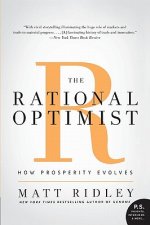
Code: 01209890
Insecurity, Inequality, and Obesity in Affluent Societies
by Avner Offer
During the last three decades, obesity has emerged as a big public health issue in affluent societies. A number of academic and policy approaches have been taken, none of which has been very effective. Most of the academic researc ... more
- Language:
 English
English - Binding: Hardback
- Number of pages: 220
Publisher: Oxford University Press, 2012
- More about this

You might also like
-

RTI in the Common Core Classroom
41.96 € -

Poetry of the Taliban
22.83 € -4 % -

Tractates Pesahim and Yoma
355.84 € -

EMR of Paramagnetic Molecules
58.56 € -

Kytička přání k Tvým narozeninám
3.81 € -31 % -

Zahrady a vily manýrismu v souvislostech
14.58 € -5 % -

Duden Mathematik - Sekundarstufe I - Berlin und Brandenburg - 6. Schuljahr
37.12 €
Give this book as a present today
- Order book and choose Gift Order.
- We will send you book gift voucher at once. You can give it out to anyone.
- Book will be send to donee, nothing more to care about.
More about Insecurity, Inequality, and Obesity in Affluent Societies
You get 211 loyalty points
 Book synopsis
Book synopsis
During the last three decades, obesity has emerged as a big public health issue in affluent societies. A number of academic and policy approaches have been taken, none of which has been very effective. Most of the academic research, whether biological, epidemiological, social-scientific, or in the humanities, has focused on the individual, and on his or her response to external incentives. The point of departure taken here is that institutions matter a great deal too, and especially the normative environment of the nation state. In brief, the argument is that obesity is a response to stress, and that some types of welfare regimes are more stressful than others. English-speaking market-liberal societies have higher levels of obesity, and also higher levels of labour and product market competition, which induce uncertainty and anxiety. The studies presented here investigate this hypothesis, utilising a variety of disciplines, and the concluding contribution by the editors presents strong statistical evidence for its validity at the aggregate level. The hypothesis has an important bearing on public health policy and, indirectly, on economic policy more generally. It indicates that important drivers of obesity arise from the interaction between the external 'shock' of falling food prices and the enduring normative assumptions that govern society as a whole. If obesity is determined in part by inflexible norms and institutions, it may not be easy to counter it by focused interventions. Distinctive societal policy norms like an attachment to individualism (which national communities embrace with some conviction) may have harmful social spillovers which are rarely taken into account.
 Book details
Book details
Book category Books in English Society & social sciences Society & culture: general Social issues & processes
83.82 €
- Full title: Insecurity, Inequality, and Obesity in Affluent Societies
- Author: Avner Offer
- Language:
 English
English - Binding: Hardback
- Number of pages: 220
- EAN: 9780197264980
- ISBN: 9780197264980
- ID: 01209890
- Publisher: Oxford University Press
- Weight: 580 g
- Dimensions: 164 × 241 × 22 mm
- Date of publishing: 05. April 2012
Trending among others
-

The Second Sex
7.14 € -24 % -

Men Explain Things to Me
12.07 € -29 % -

Your Silence Will Not Protect You
14.18 € -28 % -

Attention Merchants
12.17 € -17 % -

BEYOND WORDS
19.61 € -11 % -

George Soros On Globalization
22.63 € -

Primal Wound
43.67 € -

Ugly Laws
36.12 € -

Who Can You Trust?
10.96 € -23 % -

Kennel Club's Illustrated Breed Standards: The Official Guide to Registered Breeds
64.90 € -28 % -

Struggle for Intimacy
9.05 € -26 % -

The Lucifer Effect
15.79 € -23 % -

Pleasure Activism
16.09 € -23 % -

The Divide
11.97 € -16 % -

Food Of The Gods
15.19 € -28 % -

Shock Doctrine
14.88 € -22 % -

Future Shock
8.95 € -17 % -

Singularity Is Near
22.93 € -14 % -

Silently Seduced
11.66 € -27 % -

The Feminine Mystique
9.95 € -25 % -

Sorry I'm Late, I Didn't Want to Come
11.06 € -22 % -

Poor Economics
11.06 € -22 % -

Rational Optimist
15.89 € -24 % -

Soft Power
14.38 € -20 % -

Sensate Focus in Sex Therapy
38.53 € -5 % -

Pedagogy of the Oppressed
10.15 € -23 % -

Toxic Parents
14.38 € -22 % -

Regarding the Pain of Others
12.27 € -21 % -

White Tears Brown Scars
10.15 € -23 % -

Third Wave
8.64 € -23 % -

Social Animal
12.07 € -29 % -

Reclaiming Conversation
16.39 € -14 % -

Room of One's Own and Three Guineas
8.85 € -28 % -

Life at the Bottom
13.98 € -22 % -

Out Of The Shadows:understanding Sexual Addiction
15.89 € -16 % -

Blitzed
10.96 € -23 % -

Aquarian Conspiracy
19.11 € -23 % -

Female Domination
30.08 € -2 % -

Wounded Storyteller
24.04 € -10 % -

Asperger's Syndrome
19.61 € -1 % -

Predators
14.48 € -28 % -

Political Correctness Gone Mad?
8.64 € -29 % -

My Life on the Road
10.05 € -21 % -

Story of My Life
6.03 € -

We Should All Be Feminists
9.35 € -17 % -

Bold
13.78 € -5 % -

Dialectic of Sex
12.67 € -14 % -

Globalization and Its Discontents Revisited
15.69 € -17 % -

Conflict Is Not Abuse
17.50 € -16 %
Collection points Bratislava a 2642 dalších
Copyright ©2008-24 najlacnejsie-knihy.sk All rights reservedPrivacyCookies



 15549 collection points
15549 collection points Delivery 2.99 €
Delivery 2.99 € 02/210 210 99 (8-15.30h)
02/210 210 99 (8-15.30h)